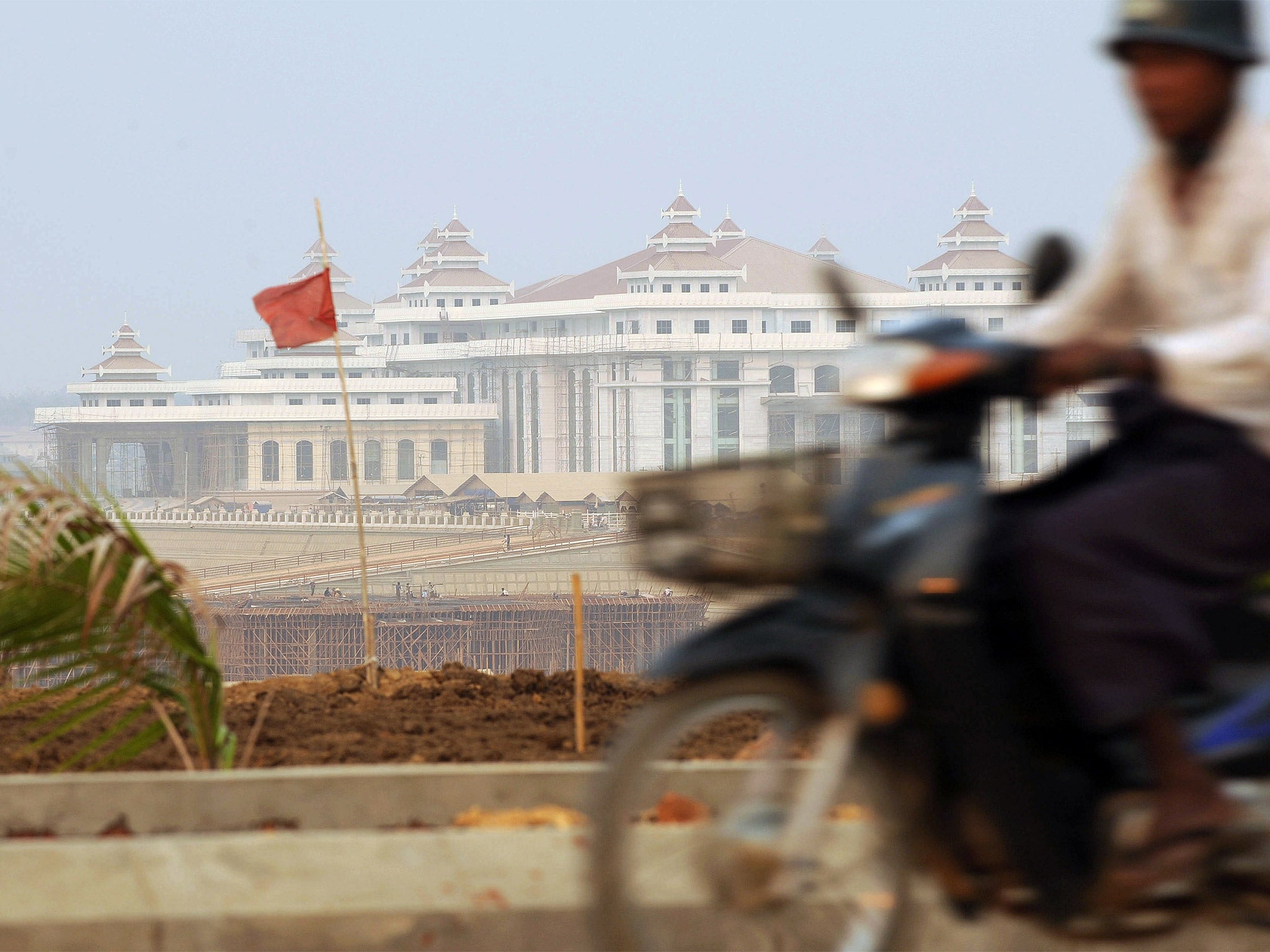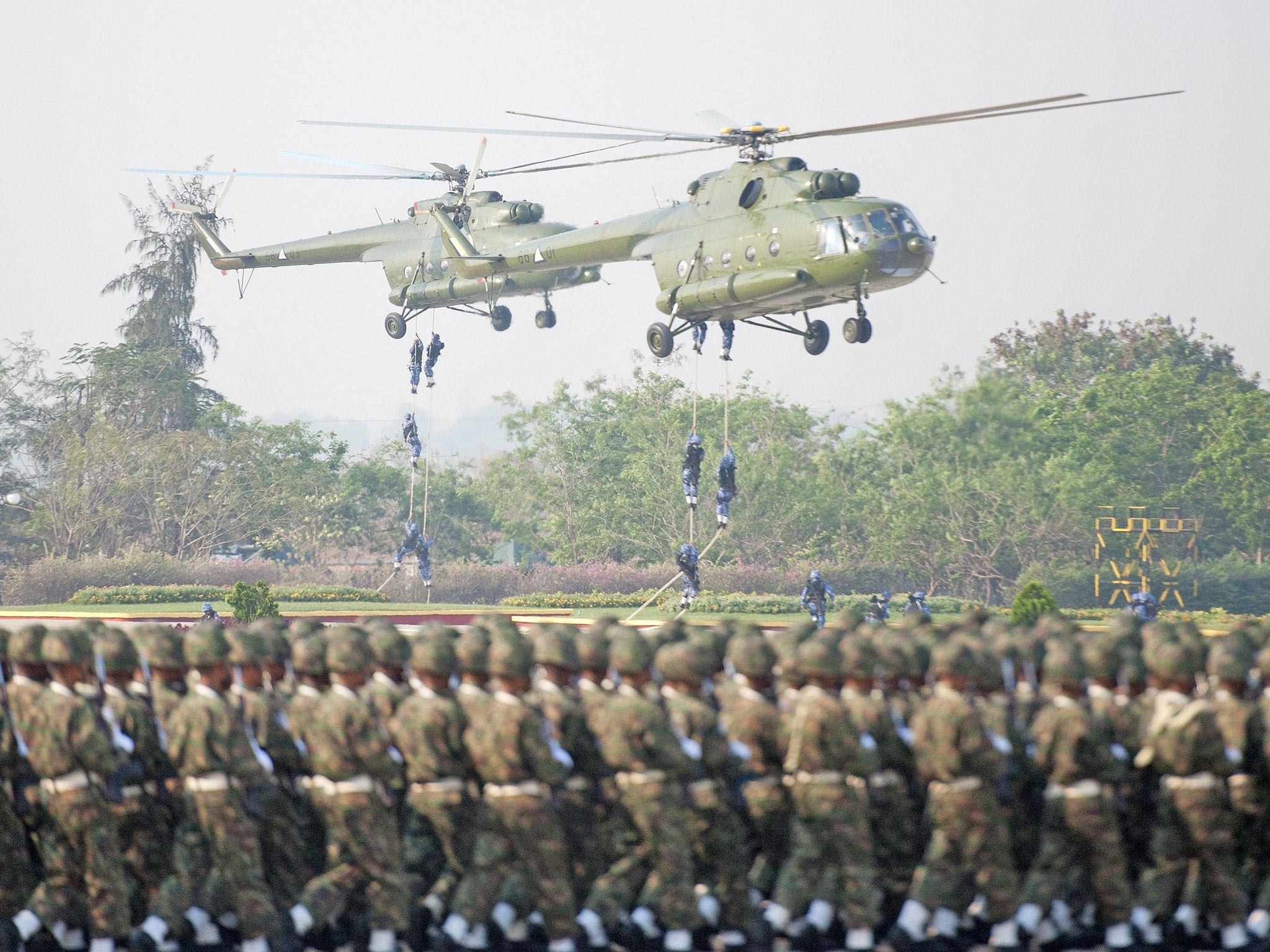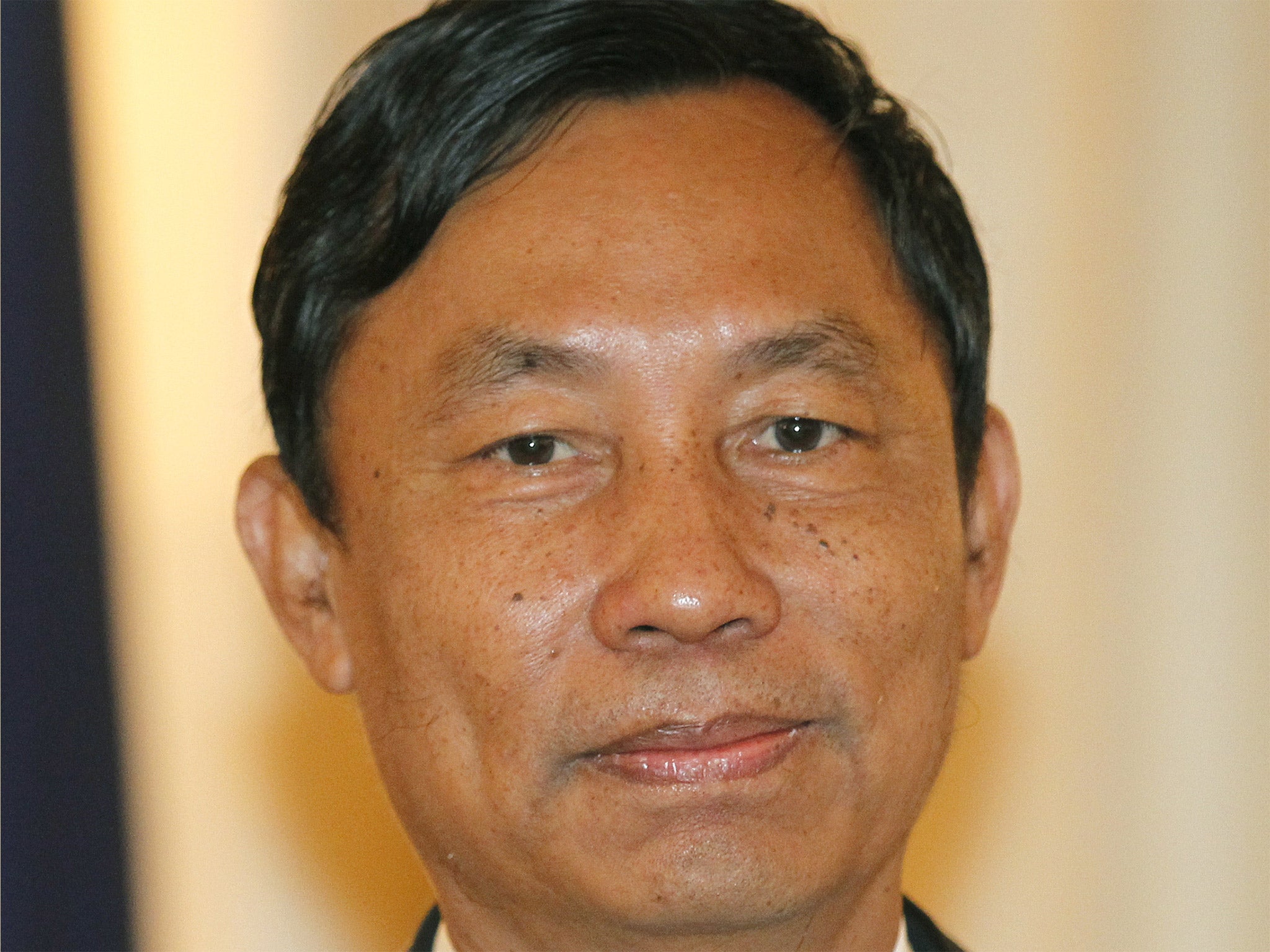In Burma's new capital, the army is on the edge of town, yet still at the heart of things
In the last in his series of reports, Peter Popham visits Naypyidaw, where a close encounter with the man likely to be its next president – a former army commander – offers a glimpse of the country's anxious future

Your support helps us to tell the story
From reproductive rights to climate change to Big Tech, The Independent is on the ground when the story is developing. Whether it's investigating the financials of Elon Musk's pro-Trump PAC or producing our latest documentary, 'The A Word', which shines a light on the American women fighting for reproductive rights, we know how important it is to parse out the facts from the messaging.
At such a critical moment in US history, we need reporters on the ground. Your donation allows us to keep sending journalists to speak to both sides of the story.
The Independent is trusted by Americans across the entire political spectrum. And unlike many other quality news outlets, we choose not to lock Americans out of our reporting and analysis with paywalls. We believe quality journalism should be available to everyone, paid for by those who can afford it.
Your support makes all the difference.Burma’s new capital is called Naypyidaw, which means Abode of Kings. Its existence was announced without preliminaries in 2005, when government ministries were relocated there overnight. It sprawls across the jungles of Burma’s central dry zone, 400km north of Rangoon.
You can drive for miles and miles along its eight-lane highways without finding anything that resembles a city, with the exception of some whimsical modern hotels, garishly illuminated at night, housing estates for bureaucrats, and the occasional hypermarket.
The closest thing to a central point in Naypyidaw is the parliamentary complex, composed of dozens of pavilions topped by red pagoda-like roofs. Close up it looks overblown and tacky, like a low-end theme park.
Getting anywhere in the city involves driving for ages. To visit the military museum, we left parliament and drove a full 30km from the middle of town, up against the north-eastern hills. It is a colossal establishment, its galleries complemented by grounds dotted with Spitfires and Second World War tanks. The officer who showed us around – he had decided we must be arms dealers until I told him different – said it was staffed by 500 serving soldiers.

The next day I asked the President’s spokesman – a man, one diplomat told me, who had made a close study of the works of Alastair Campbell – why they had decided to put the museum so far away from the centre of town. Simple, he said: it is also the location of the main regional army base (or “cantonment” as they call it, in the jargon of the British Raj) and the army didn’t want to put it too close to parliament.
“In the past, the military was 100 per cent in control of the country,” he reminded me. “Today it is only 25 per cent in control” – a reference to the 25 per cent of MPs who are serving army officers. “In future with trust they might reduce it further. This is the exit strategy of the military – a slow exit. We want to avoid chaos and bloodshed: to create a political space, create trust and move forwards.”
Those 30km of empty road were symbolic of the expanding political space between the military and the “discipline-flourishing democracy” they have brought into being.
It’s an attractive idea, the sort of notion one would expect from a spin doctor. But is it true?
From Naypyidaw I planned to go to Lashio in northern Shan state, the closest big town to the north-eastern border where a nasty war has been under way between the Burmese army and the forces of the Kokang, a Burmese minority who are ethnically Chinese. But no flights were scheduled from Naypyidaw to Lashio, so we returned to Rangoon the way we had come, by overnight highway bus, grabbed a few hours’ sleep, then headed to the airport to catch the first flight to Lashio at 6am the next morning.
So imagine my feelings when the flight attendant announced in Rangoon that our plane was to make an unscheduled stop at Naypyidaw.
Once on the ground in the capital, we and the rest of the passengers were ordered to the back of the plane to leave 40 seats for the new arrivals – the Speaker of the lower house of parliament, Thura Shwe Mann, said to be the second-most powerful person in the country after the President, accompanied by one of the two Vice-Presidents and more than 30 bodyguards, military aides and local media.

Burma’s answer to John Bercow is a suave, smiling, well-preserved man in his sixties who, like all Burma’s power-holders, has been freshly laundered from the military. He was narrowly beaten to the presidency by Thein Sein in 2011, perhaps because the latter was seen by their elders in the military as more malleable.
Today Shwe Mann is often seen as the man most likely to succeed his rival, and has forged an improbable parliamentary alliance with Aung San Suu Kyi, despite the fact that he is not only a soldier but allegedly a corrupt one.
His trip to Lashio neatly combined military and political tasks. At Lashio airport, where he was greeted by lines of locals in Shan costume, we attached our taxi to the back of his convoy of SUVs then shadowed him through the wards of the British-era hospital on the army base, as he met soldiers wounded in the recent bloody fighting on the border, closely followed by the cameras of state television.
Shwe Mann clearly understands that, if the military is to retain its power, it will have to adopt the techniques of democracy. Hence this visit, the solemn walking between beds, the words of praise and encouragement to the soldiers.
The Burmese army, its upper lip as stiff as its puttees, has got through 70 years of independence without advertising its losses. But when, in this new era of openness, it published details of the numbers killed and wounded in the Kokang war, something amazing happened: ordinary Burmese, who have detested the army for decades, suddenly started showing their support for it. They posted appreciative messages on social media and began to see the army as it has always seen itself – as the protector of the nation.
Thura Shwe Mann is a key figure in Burma’s transformation – but where that transformation is taking Burma is an open question. Unlike President Thein Sein, routinely spoken of as a “desk officer”, Shwe Mann was a fighter when he was in uniform: “Thura” is a title that means “brave hero”, awarded to him for his role in destroying Manerplaw, the jungle headquarters of dissident politicians, students and monks on the Thai-Burma border, in 1994.
In 2007 a US diplomatic cable, later published by WikiLeaks, said of him: “Shwe Mann utilised forced civilian porters, including women and children, on a massive scale during operations against Karen insurgents.” The same cable mentioned that, although Shwe Mann declared in 2004 that “nobody is above the law”, he was linked to the corrupt military crony Tay Za and had other extensive business interests of his own. His sons, businessmen who are still on the US’s black list, are widely spoken of as corrupt.
Thein Sein and the ex-soldiers of the ruling Union Solidarity and Development Party came to power in 2010 by rigging the general election, aided by the absence – she was still in detention – of Ms Suu Kyi and her party from the contest.
Next time, with international observers in place and the NLD fully engaged, that will be much more difficult: if the army wants to do better than merely hang on to the 25 per cent of MPs granted it by the constitution, it will have to follow Shwe Mann’s lead and think up astute ways of making itself popular.
But if it succeeds and becomes a serious rival to the NLD, will this accelerate the army’s “slow exit” from power? Or will it merely help to make its centrality permanent?
Join our commenting forum
Join thought-provoking conversations, follow other Independent readers and see their replies
Comments